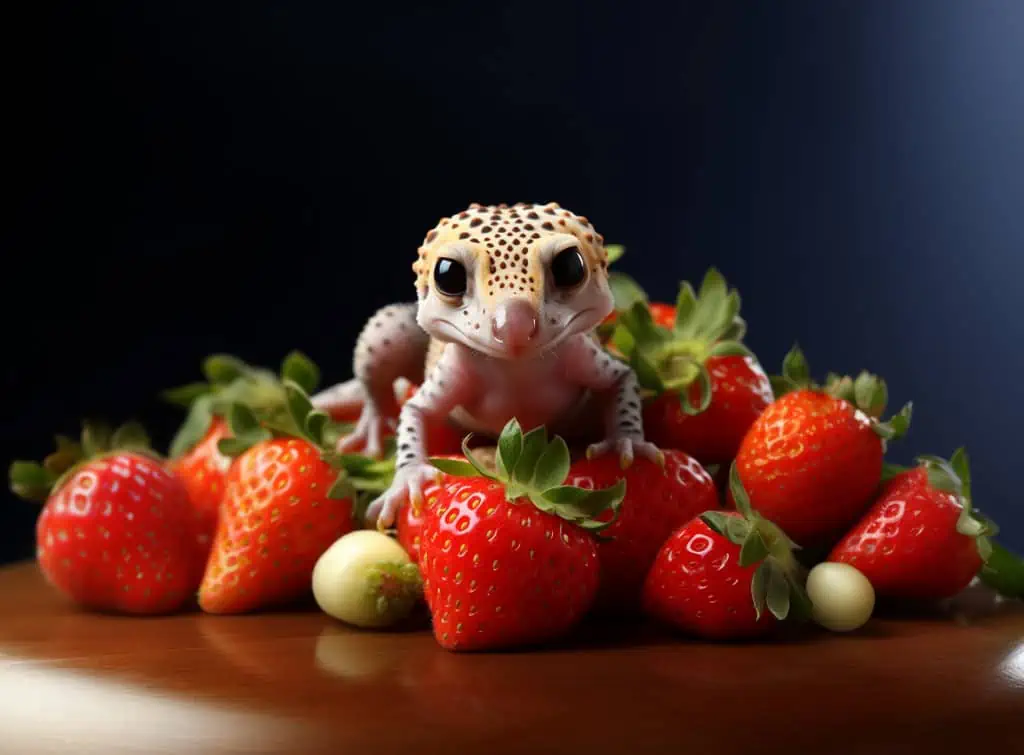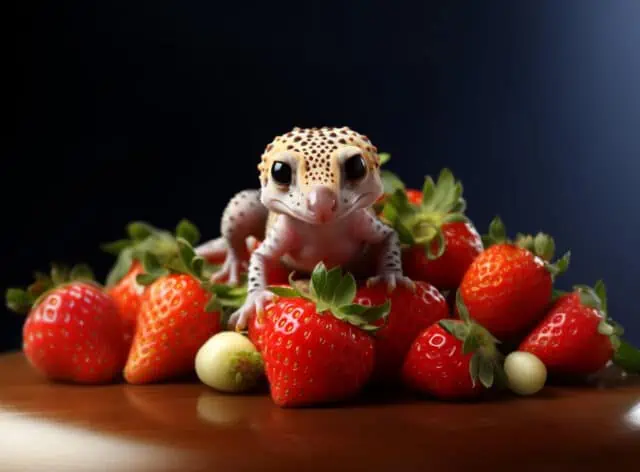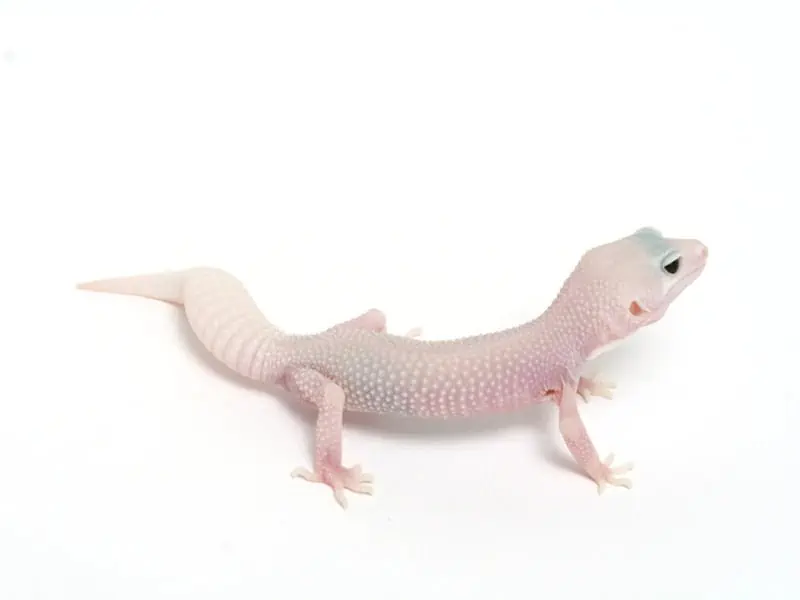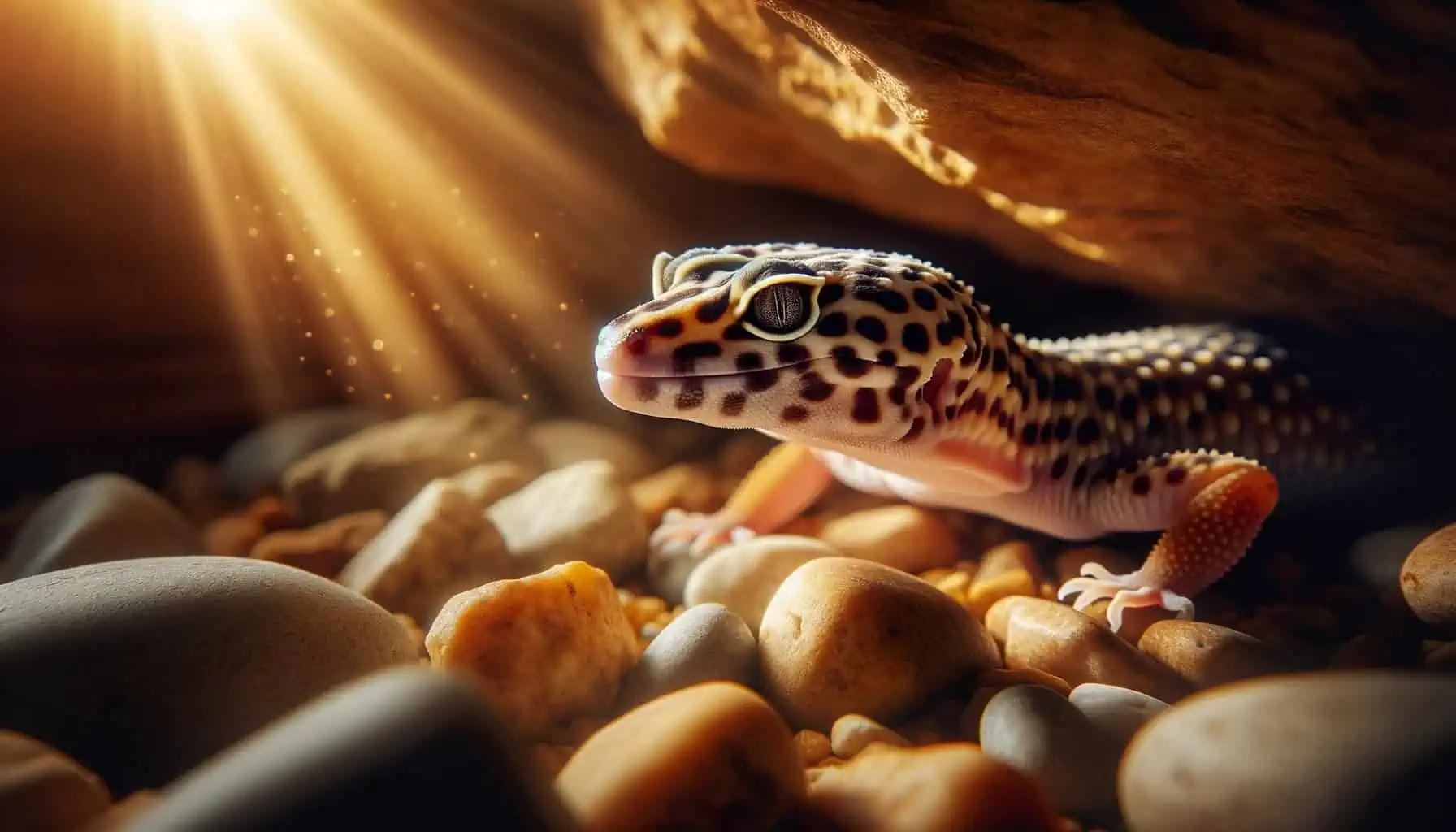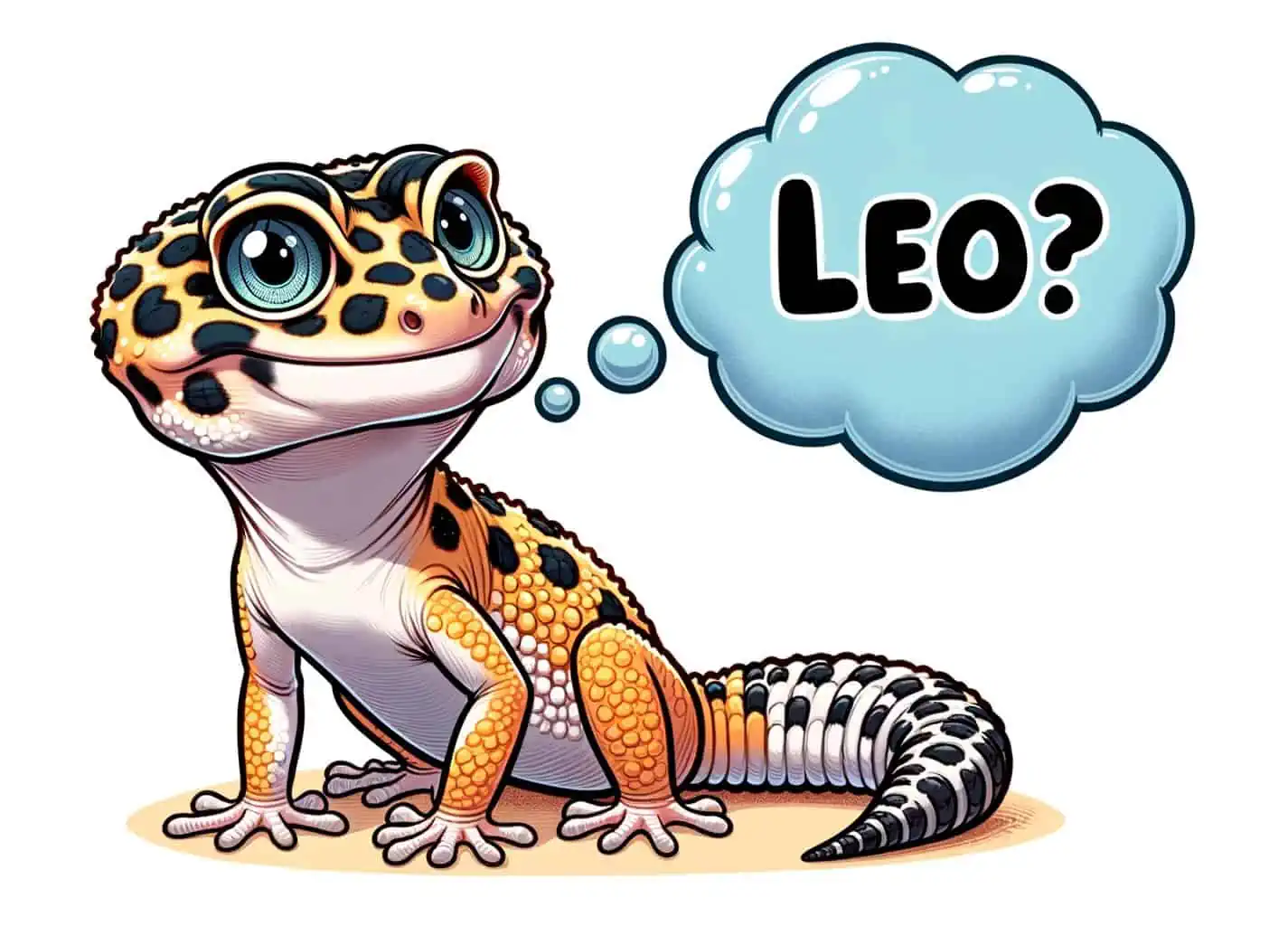Leopard Geckos cannot eat strawberries. Contrary to what some might think, these fascinating reptiles are insectivores, meaning their primary diet consists of insects. While the vibrant red of strawberries might seem tempting, it’s essential to understand that these fruits are not suitable for Leopard Geckos.
Strictly Insectivores: Leopard Geckos cannot eat strawberries or any other fruits due to their insectivorous dietary nature, meaning their diet should strictly consist of insects.
Digestive Limitations: The absence of a cecum and an alkaline gastrointestinal tract in Leopard Geckos prevents them from properly digesting cellulose and sugars found in strawberries and other fruits.
Anatomical Constraints: Their small jaw and sharp teeth are adapted for an insect diet and are not suitable for chewing or digesting fruit.
Health Risks: Feeding strawberries to Leopard Geckos can lead to digestive issues and other health complications due to their inability to process fruit sugars and cellulose.
Stick to Natural Diet: To ensure optimal health and longevity, adhere to a diet that mimics their natural intake, focusing on insects like mealworms and crickets, and avoiding all fruits and vegetables.
Can Leopard Geckos Eat Strawberries?
The simple answer is no, Leopard Geckos should not eat strawberries. While these fruits might be a delightful treat for us humans, they’re not suited for the dietary needs of a Leopard Gecko. As insectivores, their natural diet revolves around insects, not fruits or vegetables.
Can Leopard Geckos Eat Other Types of Fruits?
Leopard Geckos have a unique dietary requirement that sets them apart from some other gecko species. Being insectivores, they exclusively feed on insects. This means fruits, whether it’s watermelon or any other type, are not a natural part of their diet.
While it might be tempting to offer them a slice of watermelon or a leaf of spinach, it’s essential to resist the urge. Other gecko species might relish fruits, but for Leopard Geckos, it’s a no-go. Offering them fruits can lead to digestive issues and deprive them of the essential nutrients they get from their insect-based diet.
Why Can’t Leopard Geckos Digest Strawberries?
Strawberries, with their juicy sweetness, might seem like a harmless treat. However, for Leopard Geckos, they pose a challenge. It’s not just about preference; it’s about biology. These reptiles have specific anatomical and physiological traits that make digesting strawberries, and fruits in general, a challenge.
They Lack a Cecum
One of the primary reasons Leopard Geckos struggle with digesting strawberries lies in the absence of a cecum in their digestive system.
The cecum plays a pivotal role in digestion, particularly in breaking down complex plant materials like cellulose. In many animals, the cecum contains beneficial bacteria that aid in the digestion of cellulose, turning it into nutrients the body can use.
However, Leopard Geckos lack this essential organ. Without a cecum, they don’t have the means to break down the cellulose present in strawberries effectively. This absence is a clear indication of their insectivorous nature, as they’ve evolved to digest insects rather than plant matter.
Feeding them strawberries or other fruits containing cellulose can lead to digestive complications, as their system isn’t equipped to handle such foods.
Short Digestive Tract
Leopard Geckos possess a notably short digestive tract, another anatomical feature that underscores their insectivorous nature.
A shorter digestive tract means food passes through their system more rapidly, which is ideal for digesting insects. However, this design is less efficient when it comes to breaking down more complex foods, like strawberries.
The presence of a short digestive tract in Leopard Geckos significantly impacts their ability to digest certain foods. Strawberries, with their fibrous content, require more time and specialized organs to break down fully.
Given the rapid transit of food in Leopard Geckos, strawberries and similar foods aren’t digested properly, potentially leading to health issues.
The Gastrointestinal Tract Is Alkaline, Not Acidic
Another fascinating aspect of Leopard Geckos’ digestive system is the alkaline nature of their gastrointestinal tract. Unlike many animals that have an acidic environment in their stomachs to help break down foods, Leopard Geckos maintain a more alkaline setting. This alkalinity is perfectly suited for their insect-based diet, ensuring efficient digestion of their natural prey.
However, when it comes to fruits like strawberries, this alkaline environment poses a challenge. The sugars present in strawberries require a more acidic setting for proper breakdown and digestion.
In the alkaline conditions of the Leopard Gecko’s gastrointestinal tract, these sugars aren’t digested effectively. As a result, feeding them strawberries can lead to incomplete digestion and potential health concerns.
Small Jaw and Sharp Teeth
When observing a Leopard Gecko, one might notice their distinctively small jaw and sharp teeth. These features aren’t just for show; they play a crucial role in their feeding habits. The structure of their jaw and the sharpness of their teeth are specifically adapted for catching, holding, and efficiently consuming insects.
The small jaw of the Leopard Gecko is designed to exert a strong grip on wriggling insects, ensuring they don’t escape. Their sharp teeth, on the other hand, are perfect for piercing through the exoskeletons of insects, allowing for efficient consumption. This structure is a clear indication of their insectivorous diet and how they’ve evolved over time to become specialized insect hunters.
Given this design, it’s evident that their mouth structure is unsuitable for fruit consumption. Attempting to feed them strawberries or similar fruits can be challenging, as their jaw and teeth aren’t equipped to handle such foods.
What Happens If A Leopard Gecko Eats Strawberries?
While strawberries might seem like a harmless and tasty treat to us, for Leopard Geckos, they can lead to a host of problems. Introducing such fruits into their diet can result in a range of health complications, primarily due to their inability to digest them properly.
When Leopard Geckos consume strawberries, they can experience digestive issues. Their system, as we’ve discussed, isn’t equipped to break down the cellulose and sugars present in these fruits. This can lead to indigestion, discomfort, and in some cases, more severe gastrointestinal problems.
Over time, if such foods are consistently introduced into their diet, it can lead to chronic health issues, affecting their overall well-being and lifespan.

